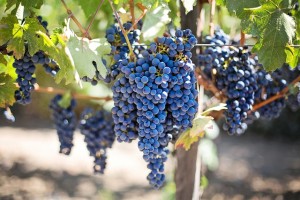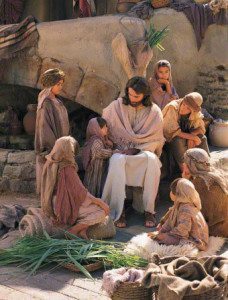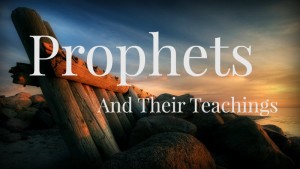In John 15 the Savior teaches His apostles that He is the true vine. This always stumped me. It wasn’t until I spent some time studying this parable that it began to make more sense. In this post I will look at what it means to be a part of the true vine.
In the December, 2003 Liahona Magazine, is an article by Anthony R. Temple entitled, Parables of Jesus: “I Am the True Vine.” This article helped me understand more about what Jesus was referring to in John 15. I recommend you read Elder Temple’s article.
We call this a parable, but it is more of a metaphor, since we are comparing our relationship with Jesus and our Father in Heaven to the relationship of a stalk of a grapevine with the root of the grapevine, our Heavenly Father being the one tending the plant. In verses one through three we learn the basis of our relationship with Jesus and our Father in Heaven.
I am the true vine, and my Father is the husbandman.
Every branch in me that beareth not fruit he taketh away: and every branch that beareth fruit, he purgeth it, that it may bring forth more fruit.
Now ye are clean through the word which I have spoken unto you.
 Instead of the word true, think of words like faithful, or constant. Jesus is the true vine in that He is always faithful to the desires of the Father, he who sees to it that we flourish and bear much fruit. It is His soul desire that the plant He tends produces as much as possible. In this case, the comparison is that our Father in Heaven does everything in His power to see to it we are as prosperous and happy as He can help us become. He does this through Jesus, since He cannot do this through us directly. (That doctrine is what the fall and atonement are all about.)
Instead of the word true, think of words like faithful, or constant. Jesus is the true vine in that He is always faithful to the desires of the Father, he who sees to it that we flourish and bear much fruit. It is His soul desire that the plant He tends produces as much as possible. In this case, the comparison is that our Father in Heaven does everything in His power to see to it we are as prosperous and happy as He can help us become. He does this through Jesus, since He cannot do this through us directly. (That doctrine is what the fall and atonement are all about.)
I wondered what was meant by the purging of the branch, so I did what any sane person would do with a question, I went to Youtube.com. I looked up some videos on the pruning or cultivation of grapevines. I saw one video that was particularly interesting. If the stalk on which the grapes are produced is allowed to become overgrown with leaves, the likelihood of that cluster of grapes developing rot skyrockets. If the husbandman strips some of the leaves away from the clusters so they are left to bask in the full light of the sun, the fruit flourishes and is much healthier.
How We Abide
In John 15:4 – 7 Jesus tells His apostles that we need to abide in Him, and He in us. Instead of the word abide, try thinking of something like “trust completely,” or “depend on,” or “live for.” Any of these will work.
Abide in me, and I in you. As the branch cannot bear fruit of itself, except it abide in the vine; no more can ye, except ye abide in me.
I am the vine, ye are the branches: He that abideth in me, and I in him, the same bringeth forth much fruit: for without me ye can do nothing.
If a man abide not in me, he is cast forth as a branch, and is withered; and men gather them, and cast them into the fire, and they are burned.
If ye abide in me, and my words abide in you, ye shall ask what ye will, and it shall be done unto you.
In verse four think about how dependent the vine (the root stalk) and the branch that grows from that root stalk (called the vine) are on one another. The root stalk can give life to all the branches that grow from it, but cannot produce the fruit by itself that the husbandman needs for His harvest. The branches produce the fruit, but only because of the vine from which they get their nourishment. The two have to work together in complete harmony for fruit to be created and harvested.
 In this way, we are completely dependent on Jesus for all our spiritual nourishment. Just as the branch cannot exist without the vine (the root), so the root needs the branch to produce the fruit desired by our Father in Heaven. We need each other.
In this way, we are completely dependent on Jesus for all our spiritual nourishment. Just as the branch cannot exist without the vine (the root), so the root needs the branch to produce the fruit desired by our Father in Heaven. We need each other.
Jesus is absolutely correct (no surprise there) that we cannot do anything without Him. Without Jesus we would be completely unprofitable, and in the end would be cast into the fires with all the other dead wood.
The great promise that comes out of this section of verses is in verse seven. The promise is that if we ask anything of Jesus he will grant it. This is, of course, referring to anything having to do with the production of the fruit, the good deeds our Father in Heaven wants us to produce. This is the purpose of this relationship, to produce that which is good and brings happiness to God’s children.
Our Relationship Defined
Jesus then goes on to define how the three of us are related to each other in this effort to produce the good that results in glory to the Father. Here is verse eight:
Herein is my Father glorified, that ye bear much fruit; so shall ye be my disciples.
Since we cannot produce anything that is good and long lasting without the work that Jesus provided for us through His atonement, we must become His students, His disciples, and learn all we can from Him. We are but unproductive and dead branches on a plant without the root that gives us life. What we produce together, us and Jesus, is what glorifies God.
Another word for abide is continue. Think of the hymn with the line that says, “Abide with me, tis eventide.” In other words, stay or continue with me because it is growing dark. Here are verses nine through eleven:
As the Father hath loved me, so have I loved you: continue ye in my love.
If ye keep my commandments, ye shall abide in my love; even as I have kept my Father’s commandments, and abide in his love.
These things have I spoken unto you, that my joy might remain in you, and that your joy might be full.
 I love verse 10 where Jesus says outright that the way He has abided or continued in His Father’s love is the same way we continue in the love of Jesus, by keeping His commandments. That is our key, keep the commandments. Live the way we are taught to live so we produce the greatest amount of good and joy we can. In verse eleven He tells us that this is the way His joy stays with us and remains with us so our joy becomes full. Keeping the commandments is the only way to do it.
I love verse 10 where Jesus says outright that the way He has abided or continued in His Father’s love is the same way we continue in the love of Jesus, by keeping His commandments. That is our key, keep the commandments. Live the way we are taught to live so we produce the greatest amount of good and joy we can. In verse eleven He tells us that this is the way His joy stays with us and remains with us so our joy becomes full. Keeping the commandments is the only way to do it.
Finally, here are verses twelve through fifteen. Our relationship is now clearly defined as beloved friends. A master doesn’t tell His servants why He does what He does, but He tells His friends why he does things. Jesus loves us like dear friends, and is willing to give everything for us, even His life. He is assuming we, who can do nothing without Him, will come to love Him just as much.
This is my commandment, That ye love one another, as I have loved you.
Greater love hath no man than this, that a man lay down his life for his friends.
Ye are my friends, if ye do whatsoever I command you.
Henceforth I call you not servants; for the servant knoweth not what his lord doeth: but I have called you friends; for all things that I have heard of my Father I have made known unto you.
Expect to Be Pruned
We all have times in our lives when we feel like we have been “cut down to size” by some unseen force. We often resent the disappointments and setbacks, but these are often the times the Lord is purging us of those things that will not lead to our ultimate happiness. We need to be grateful for the censuring or pruning of our Master Gardener. There have been multiple talks about this very subject in General Conferences over the decades.
As we go through life it is important that we remember just how dependent we are on our Savior. We cannot produce the long term good we seek, nor obtain the joy we seek, without Him. We abide in Him by keeping His commandments, just as He abides in our Father by keeping His (the Father’s) commandments.
This parable can help us be more humble for the life Christ gives us, more grateful for the pruning or purifying our Father in Heaven provides us, even though it can feel frustrating at times. These verses can also help us feel more deeply the trust our Lord places in us as His friends, and hopefully we will sense our privilege that such a one as Jesus was willing to put His life on the line that we might live and ultimately be able to give glory to our loving Father in Heaven.
About Kelly P. Merrill
Kelly Merrill is semi retired and writes for https://gospelstudy.us. He lives with his wife in Idaho. His strength is being able to take difficult to understand subjects and break them down into understandable parts. He delights in writing about the gospel of Christ. Writing about the gospel is his personal missionary work to the members of the Church and to those of other faiths who are wanting to know more about Christ's gospel and His Church.







Brother Merrill,
I wish to give thanks to you for the most inspiring subject:
What it means to be part of the True Vine John 15; comparing our relationship to a stalk of a grapevine the basis of our relationship with our Savior Jesus Christ and our Heavenly Father. Recently my sister had an operation. I went to look after her when she came out of hospital she lives on a farm in the North with 21 peach trees 4 apple trees all abundantly loaded with fruit and her grapevine is also laden with fruit, she has, hens, ducks, and cats. She is a woman of great faith at the moment in the far North they have a drought they have tank water and rely on rain to fill their tanks. We are completely dependent upon the Lord for all our spiritual nourishment and for our temporal needs. I am very grateful for the blessings of the gospel in our lives also the challenges we face we miss our Hamilton NZ Temple it closed 21_July 2019 for work to be done it will be completed in 2021 we look forward to that when we can go and renew our Temple covenants.
Thank you Muriel for your comments. One of the great joys of the gospel is that no matter how well we understand or grasp a topic, the Lord has a way of helping us to appreciate it one level deeper than we did before. I don’t know where the bottom of that well is, but I can’t wait to appreciate His goodness in full.
I would like to have a private conversation with you about this. Please contact me.